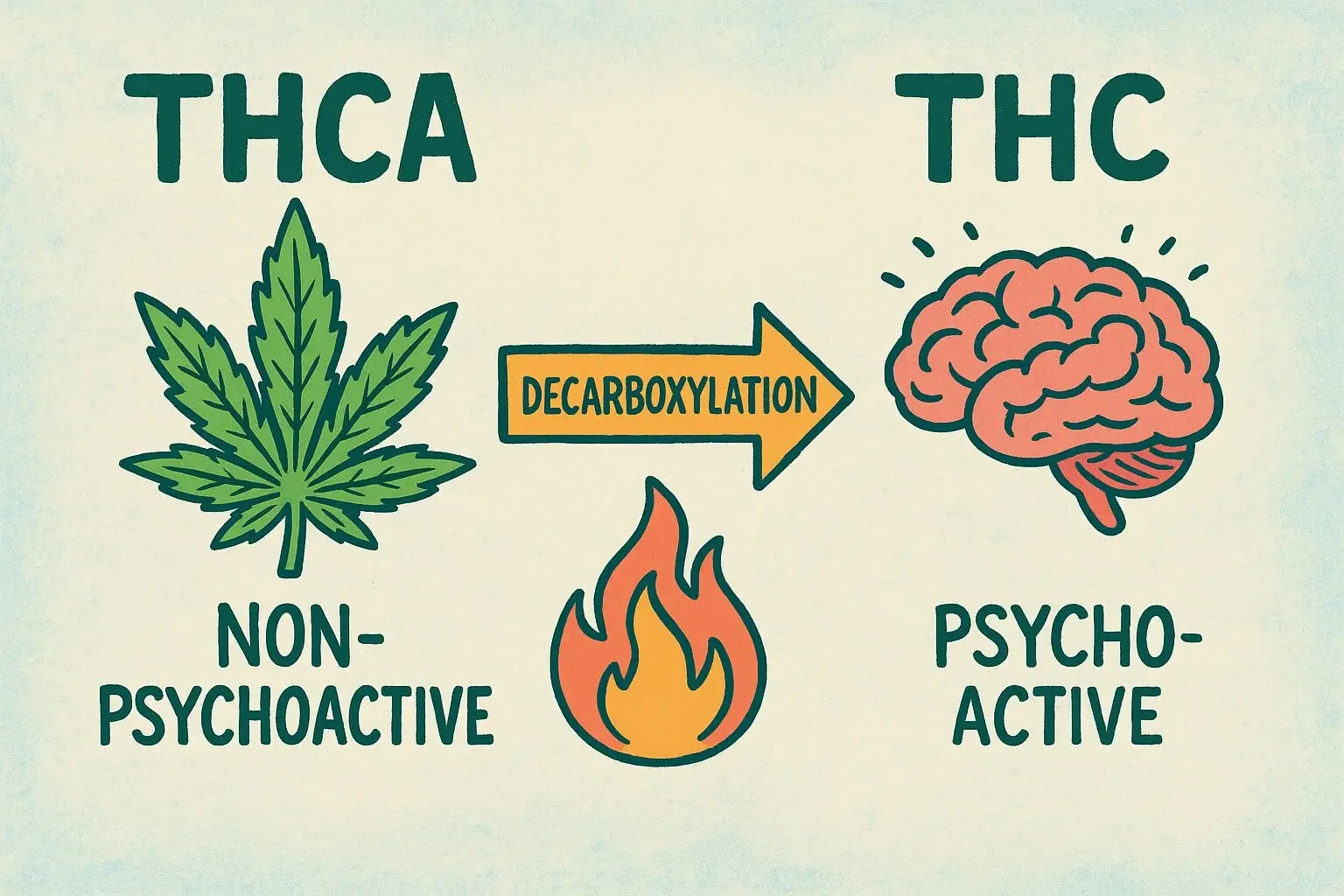What is THC-A ?
THCA, or tetrahydrocannabinolic acid, is a non-psychoactive compound found in raw cannabis plants. It is the precursor to THC (tetrahydrocannabinol), the main psychoactive component of cannabis. When heated, THCA converts to THC through a process called decarboxylation, which is why you don't experience the psychoactive effects of THC when consuming raw cannabis.
Here's a more detailed explanation:
THCA is not psychoactive:
Unlike THC, THCA does not produce a "high" or intoxicating effect.
Precursor to THC:
THCA is the acidic form of THC, meaning it contains an extra carboxyl group that prevents it from binding to the same receptors in the brain as THC.
Decarboxylation:
When cannabis is heated, such as when it's smoked or vaped, the carboxyl group is removed, converting THCA into THC, the psychoactive compound.
Found in raw cannabis:
THCA is naturally present in high concentrations in fresh, undried cannabis plants.
Potential benefits:
While non-psychoactive, THCA may have potential therapeutic benefits, including anti-inflammatory and neuroprotective properties, although more research is needed.
